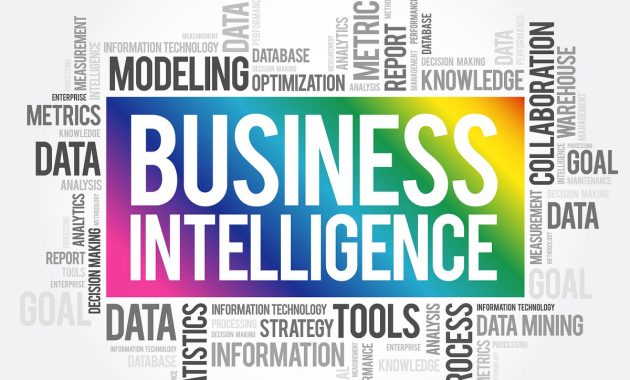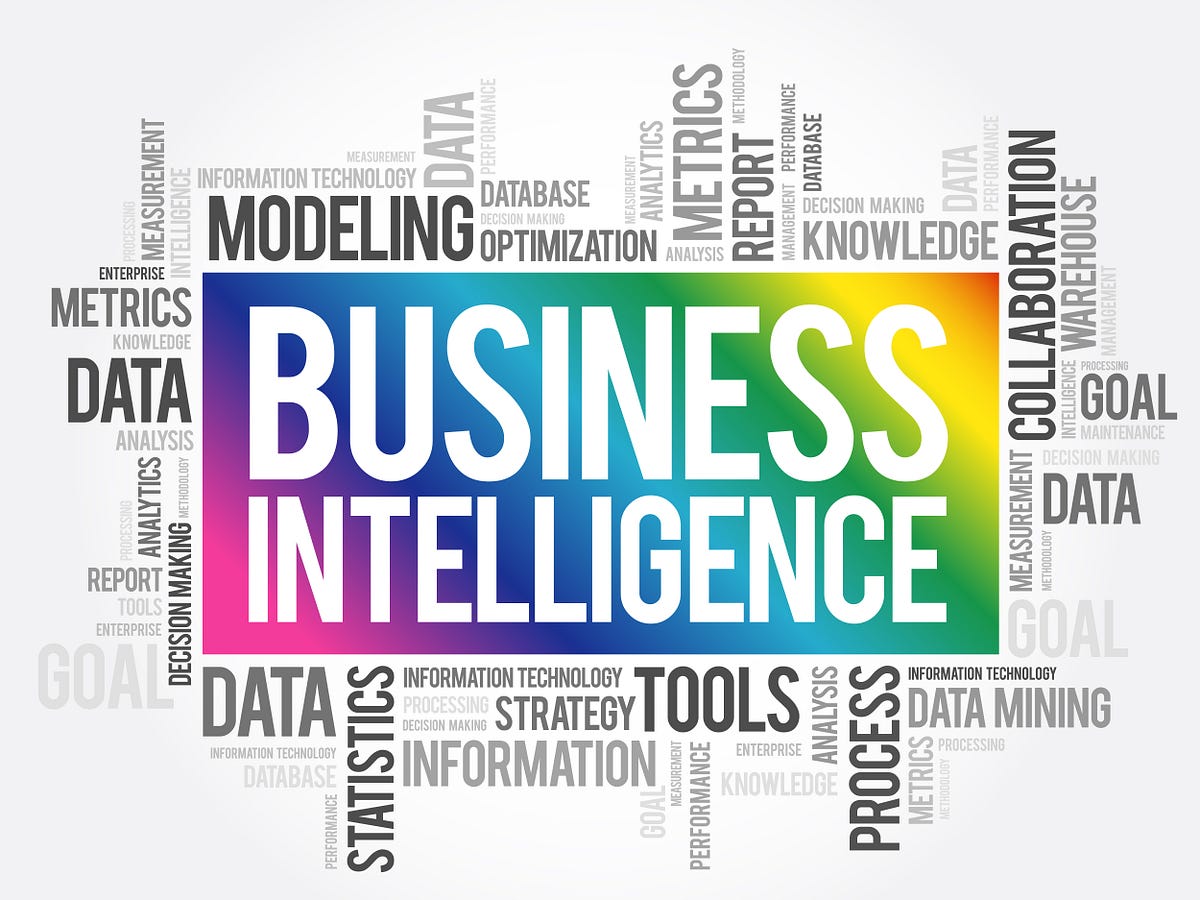
Business Intelligence Software for Non-Tech Users: Empowering Data-Driven Decisions
In today’s fast-paced business environment, data is king. Companies that can effectively harness the power of their data gain a significant competitive advantage. However, the ability to analyze and interpret complex datasets has often been the domain of specialized technical experts. Fortunately, business intelligence software for non-tech users is changing the game. This article explores how this software empowers individuals without a technical background to make informed, data-driven decisions.
The Rise of Data-Driven Decision Making
The shift towards data-driven decision-making is undeniable. Businesses, regardless of size or industry, are realizing the value of leveraging data to improve operations, increase profitability, and gain a competitive edge. This involves collecting, processing, analyzing, and interpreting data to identify trends, patterns, and insights. Traditionally, this process relied heavily on data scientists, analysts, and IT professionals. They possessed the technical skills required to navigate complex databases, write code, and build intricate reports. This created a bottleneck. Access to insights was often slow and limited to those with specialized knowledge. Business intelligence software for non-tech users addresses this challenge directly.
What is Business Intelligence Software?
Business intelligence (BI) software is a category of tools and applications designed to collect, process, analyze, and visualize data. It transforms raw data into actionable insights. BI software allows users to create dashboards, reports, and visualizations. These tools make it easier to understand complex data. They help identify trends, patterns, and anomalies. The primary goal of BI software is to empower users to make better decisions based on data. It moves beyond gut feelings and subjective opinions. It relies on concrete evidence and objective analysis.
Why is Business Intelligence Software for Non-Tech Users Important?
The need for business intelligence software for non-tech users stems from several key factors:
- Democratization of Data: It makes data accessible to everyone in the organization. It breaks down the barriers that previously limited access to insights.
- Faster Decision-Making: Non-technical users can generate reports and dashboards on demand. This accelerates the decision-making process.
- Improved Collaboration: It facilitates data sharing and collaboration across departments. Everyone can access the same information.
- Increased Efficiency: It automates data analysis and reporting tasks. This frees up valuable time for other activities.
- Enhanced Business Performance: Data-driven decisions lead to better outcomes. This includes increased revenue, reduced costs, and improved customer satisfaction.
Key Features of User-Friendly Business Intelligence Software
Business intelligence software for non-tech users typically includes the following features:
- Intuitive User Interface: The software should have a user-friendly interface. It should be easy to navigate and understand, even for those without technical expertise.
- Drag-and-Drop Functionality: Users can easily create reports and visualizations. They can do this by dragging and dropping data fields.
- Pre-built Templates and Dashboards: The software offers pre-designed templates and dashboards. These can be customized to meet specific needs.
- Data Visualization Tools: Charts, graphs, and other visual aids help users understand data quickly. They are often more intuitive than raw data tables.
- Data Connectivity: The software should connect to various data sources. This could be databases, spreadsheets, and cloud-based applications.
- Automated Reporting: The software can automatically generate and distribute reports. This saves time and effort.
- Mobile Accessibility: Users can access reports and dashboards on their mobile devices. They can stay informed on the go.
Benefits of Using Business Intelligence Software for Non-Tech Users
Implementing business intelligence software for non-tech users offers numerous benefits:
- Improved Decision-Making: Data-driven insights lead to more informed decisions. This reduces the risk of making decisions based on assumptions.
- Increased Efficiency: Automating reporting and analysis tasks saves time. It allows employees to focus on more strategic initiatives.
- Enhanced Collaboration: Data sharing and collaboration across departments improve. Everyone has access to the same information.
- Better Business Performance: Data-driven decisions lead to improved outcomes. This increases revenue, reduces costs, and improves customer satisfaction.
- Competitive Advantage: Businesses that effectively leverage data gain a competitive edge. They can respond quickly to market changes.
Choosing the Right Business Intelligence Software
Selecting the right business intelligence software for non-tech users requires careful consideration. Several factors should be taken into account:
- Ease of Use: The software should have a user-friendly interface. It should be easy to navigate and understand.
- Features and Functionality: The software should offer the features you need. Consider data visualization, data connectivity, and reporting capabilities.
- Data Sources: Ensure the software connects to your existing data sources. This includes databases, spreadsheets, and cloud applications.
- Scalability: Choose software that can scale as your business grows. It should handle increasing data volumes and user numbers.
- Cost: Consider the total cost of ownership. This includes software licenses, implementation costs, and ongoing maintenance.
- Support and Training: Ensure the vendor provides adequate support and training. This helps users get the most out of the software.
Top Business Intelligence Software Options for Non-Tech Users
Several BI software options cater specifically to non-technical users. These tools emphasize ease of use and intuitive interfaces. Some popular choices include:
- Tableau: Known for its powerful data visualization capabilities and user-friendly interface. It is a popular choice for businesses of all sizes.
- Microsoft Power BI: Integrates seamlessly with other Microsoft products. It offers a wide range of features and is relatively affordable.
- Qlik Sense: Uses an associative data model. It allows users to explore data in a more intuitive way.
- Looker: A cloud-based BI platform. It focuses on data governance and collaboration. [See also: Best BI Tools Comparison]
Implementing Business Intelligence Software Successfully
Successful implementation of business intelligence software for non-tech users requires a well-defined strategy:
- Define Your Goals: Clearly define your business objectives. Determine what you want to achieve with the software.
- Assess Your Data: Evaluate your existing data sources. Identify any data quality issues.
- Choose the Right Software: Select software that meets your specific needs and budget. Consider ease of use and features.
- Provide Training: Offer adequate training to your users. Ensure they understand how to use the software effectively.
- Develop a Data Governance Plan: Establish data governance policies and procedures. This ensures data quality and consistency.
- Monitor and Evaluate: Regularly monitor the use of the software. Evaluate its impact on your business.
The Future of Business Intelligence for Everyone
The future of business intelligence software for non-tech users is bright. As technology continues to evolve, BI tools will become even more user-friendly and accessible. We can expect to see:
- Artificial Intelligence (AI) Integration: AI will automate data analysis and generate insights. This will further simplify the process.
- Natural Language Processing (NLP): Users will be able to interact with BI software using natural language. This will make it even easier to ask questions and get answers.
- Increased Mobile Accessibility: BI tools will become increasingly accessible on mobile devices. Users can access data and insights from anywhere.
- Embedded Analytics: BI capabilities will be embedded into other business applications. This will streamline workflows and improve decision-making.
The trend toward accessible BI is clear. It is empowering non-technical users to make data-driven decisions. This shift is transforming how businesses operate. It is also driving innovation and growth across industries. By embracing business intelligence software for non-tech users, companies can unlock the full potential of their data. They can gain a significant competitive advantage.
Conclusion
Business intelligence software for non-tech users is a powerful tool. It empowers individuals without technical expertise to make data-driven decisions. This leads to better business outcomes. By choosing the right software and implementing it effectively, businesses can unlock the full potential of their data. They can gain a significant competitive advantage in today’s data-driven world. Investing in this type of software is an investment in a data-driven future. This investment helps businesses thrive.

